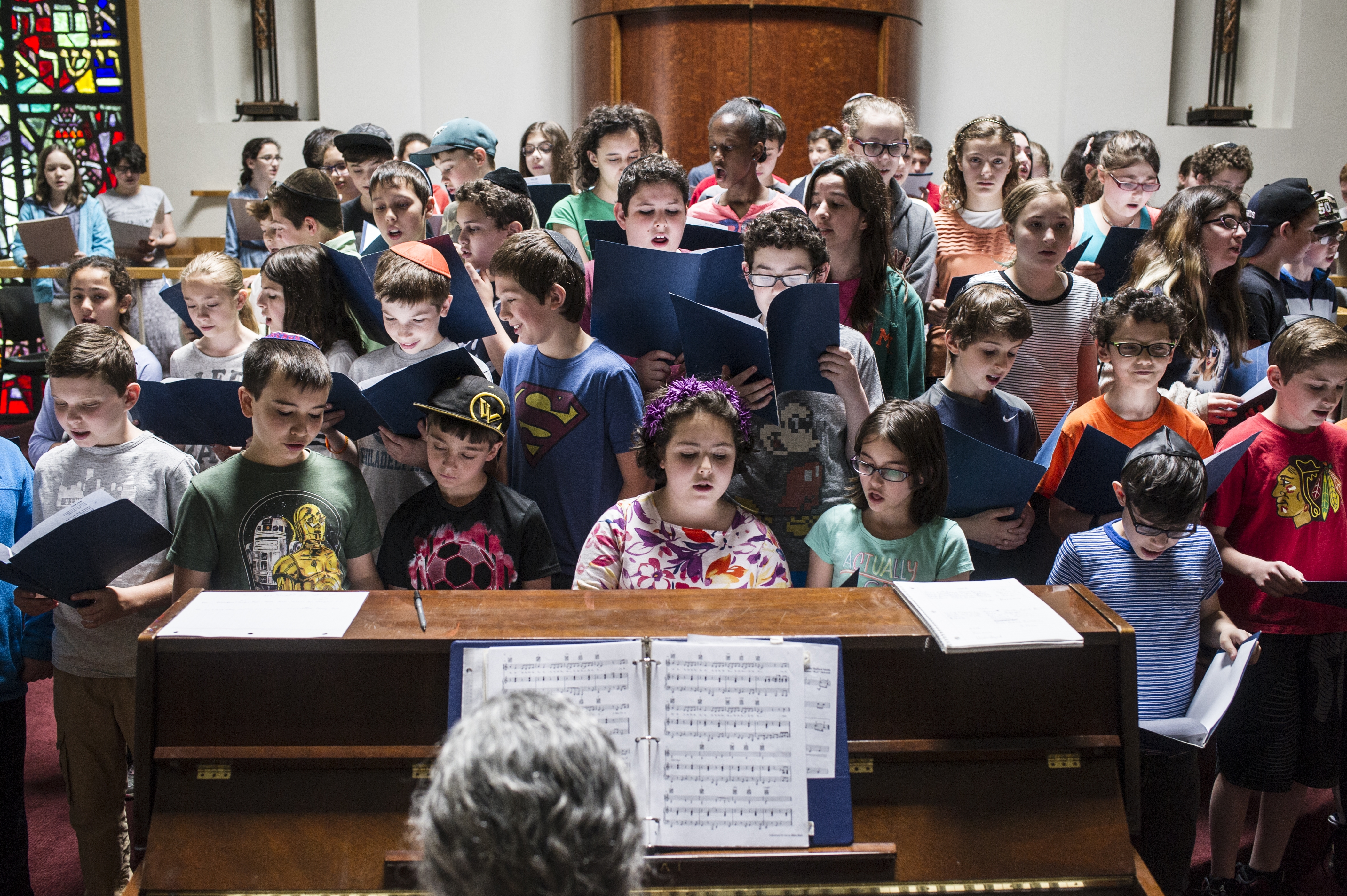We have tried to anticipate some of your questions below, but we encourage you to ask as many as you like. If you have a burning question, email us—and let’s start a conversation!
1. Where do your students come from?
Our students come from all over Chicagoland: Hyde Park, South Loop, Southwest Side, Gold Coast, Lincoln Park, Lakeview, West Rogers Park, Skokie, Northbrook and everything in between.
2. Where do graduates go to high school?
Our graduates’ choices for high school reflect their diversity as students. Common choices are: Lincoln Park Honors Program, Walter Payton, Whitney Young, U Chicago Lab Schools, Jones College Prep, Rochelle Zell Jewish High School, Ida Crown Jewish Academy, Hanna Sachs, Skokie Yeshiva.

3. How do you manage to be pluralistic?
We create policies that are inclusive, rather than exclusive. For example, all food must be kosher, so that everyone can eat it, but we divide up our prayer groups by skill level, not by gender. All classes are co-ed. When students celebrate a bar- or bat-mitzvah, we program a shabbaton, so that all students can participate in the event regardless of where it is held. Because our students are so different in their at-home religious practices, the school focuses on learning original texts and building the skills to do so. We do not teach a “right” or “wrong” way of practicing Judaism.
4. How can you offer a high-school preparatory secular education in only half the time?
We work smarter, not harder. School is not about how much information we can pour into a child, but how many tools we can give him. Many schools waste a great deal of time because they don’t individualize. We use the time we have efficiently because we truly meet the needs of each student. Plus, we organize the Judaic program so that it re-enforces the same skills we teach in the secular program.
5. We’re not religious. Will my child feel left-out or judged by his peers?
No. There is no expectation that a student be observant at home. Students here are accustomed to talking to each other about their religious practices. Exposure to all kinds of Judaism is part of what we value. It is not an accidental part of our program.
6. Is the Judaic program really necessary, since we don’t practice these rituals at home?
Our Judaic program is about empowering students to make informed choices and know where they come from. For instance, a Talmud class is not about the specific case under discussion, but about learning the Talmudic exegesis and style of argument that is practiced in our country’s finest law schools and which has carried our people for centuries. We teach some of the foundation texts of Western Civilization, but in their original tongue. These skills of analyzing original texts carry over to other disciplines quite seamlessly.
7. Does the multiage classroom really work?
Yes. This is a pedagogical choice we really believe in and its benefits are multiple and diverse. Learn more about the multiage classroom and why we have chosen it.
8. How do you manage to individualize to both—gifted students and those needing remediation?
Here’s the secret: we treat students as individuals. Teachers actually know who their students are—their gifts and their weakness—and they offer open-ended assignments and tailor their expectations accordingly. Traditional classrooms teach to the middle, which leaves the bottom students lost and the top students bored. Through multi-age classrooms, flexible ability grouping, and a low student-teacher ratio, we are able to teach students, not subjects.
9. Won’t a Jewish day school education prevent my child from receiving exposure to diversity?
No. We believe children are much more poised to embrace diversity when they know who they are and where they come from. A solid grounding in their identity from a community that knows them and has allowed them to shine will position them to enter a diverse population with confidence and ease. This is especially true because of the diversity of their peers here.